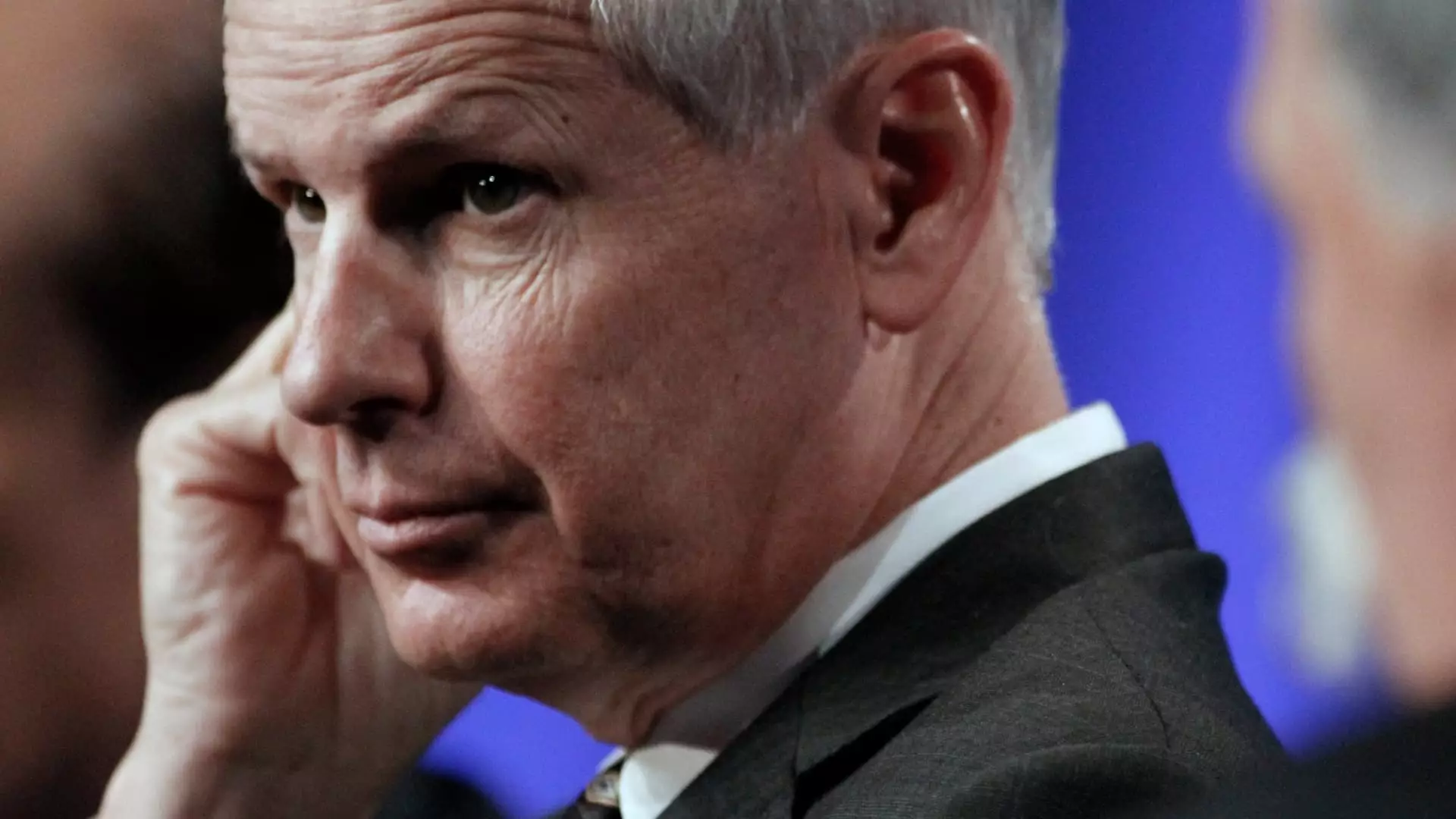The evolving landscape of the pay-TV industry appears to be reaching a critical juncture as Charlie Ergen, founder of EchoStar, stands on the brink of potentially selling off the satellite TV business he established over four decades ago. Recent reports indicate that advanced discussions are underway regarding a sale of Dish Network, the satellite TV provider under EchoStar, to its main competitor, DirecTV. This merger represents not just a shift in ownership but could reshape the entire pay-TV market, and the implications are as complex as they are significant.
At the heart of the negotiations lies EchoStar’s urgent financial situation. The company faces a considerable burden of $1.98 billion in debt that is due in November, painting a grim picture for the future of the organization. With only $521 million in cash reserves and negative cash flow forecasts for 2024, EchoStar is in a precarious position that emphasizes the necessity of immediate action. This urgency is compounded by the specter of potential bankruptcy, which has led analysts like Craig Moffett from MoffettNathanson to suggest that the next few months could be crucial for EchoStar’s survival. Scott’s assessment points to the possible need for raising capital, underscoring the dire circumstances facing the company.
The merger discussions between Dish and DirecTV are not entirely new to industry observers. In fact, similar negotiations took place back in 2002 but fell apart due to regulatory challenges. The current landscape suggests that while there is a strong desire from both companies, the completion of the merger may still be fraught with difficulties. Regulatory scrutiny is expected to be a major hurdle, considering the historical context and the current climate of anti-competitive concerns. Such challenges would not only require navigating legal implications but also addressing the potential backlash from consumers who may perceive the merger as diminishing their options in an already consolidating market.
The urgency of the merger talks underscores a broader trend: the steady decline of traditional pay-TV services, particularly satellite providers like Dish Network. As consumer preferences shift dramatically toward streaming platforms such as Netflix and Disney+, satellite TV providers have found themselves losing millions of subscribers. Dish has reported a subscriber base reduction to 6.1 million for satellite services, alongside 2 million for its Sling TV service. DirecTV, similarly, has witnessed a significant drop, going from approximately 15.4 million subscribers at its peak in 2015 to about 11 million currently. This decline raises questions about the long-term viability of both companies in their current forms.
The proposed merger between Dish Network and DirecTV is being structured as a cash transaction. DirecTV, which is privately held and owned by a consortium led by TPG and AT&T, is reportedly planning a buyout that may exceed $9 billion. This substantial financial commitment could help stabilize Dish while also consolidating the satellite TV market under a single provider. However, this financial transaction, while necessary, may not serve as a panacea for the fundamental issues both companies face regarding subscriber retention and market perception.
As the discussions between EchoStar and DirecTV progress, the outcome of this potential merger stands to impact not only the companies involved but the broader pay-TV ecosystem. With an enterprise value for EchoStar of roughly $31 billion and the implications of a merger still hanging in the balance, industry watchers are left to ponder what a successful consolidation would mean for consumers and competitors alike.
While the imminent merger of Dish Network and DirecTV represents a compelling move towards stabilization for both entities, it unveils deeper issues within the pay-TV landscape. It also raises ethical questions about consumer choice and regulatory oversight in a market where conventional models are shifting rapidly. The next steps in this ongoing saga will undoubtedly determine not only the fate of these two companies but could also serve as a bellwether for the evolution of the pay-TV industry as a whole.

Leave a Reply